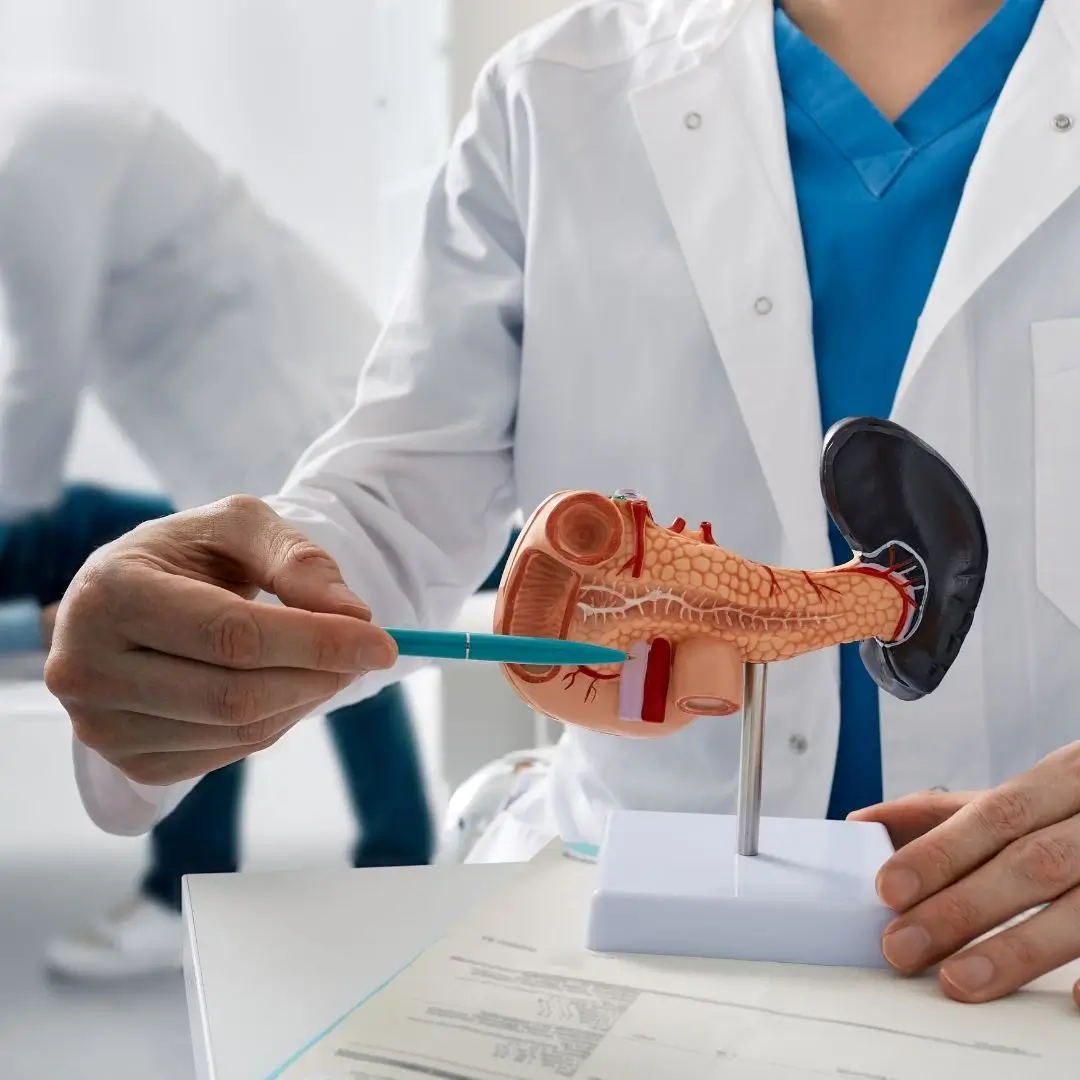Frequently Asked Questions
Pancreatitis is inflammation of the pancreas. It can be acute (sudden) or chronic (long-term) and may range from mild to life-threatening.
Common causes include gallstones, chronic alcohol use, high triglycerides, certain medications, and abdominal trauma.
Symptoms include severe upper abdominal pain, nausea, vomiting, fever, and tenderness in the abdomen.
Diagnosis is made using blood tests (amylase, lipase), imaging studies like CT or ultrasound, and clinical symptoms.
Treatment includes hospitalization for IV fluids, pain relief, fasting to rest the pancreas, and addressing the underlying cause.
Chronic pancreatitis treatment includes pain management, enzyme replacement, dietary changes, and sometimes surgery or endoscopy.
Acute pancreatitis can often be cured with treatment. Chronic pancreatitis is usually managed rather than cured.
A low-fat, high-protein, and high-antioxidant diet is often recommended, along with avoiding alcohol and fried foods.
Complications include infection, necrosis, diabetes, pseudocysts, and increased risk of pancreatic cancer.
Yes. Chronic alcohol use is a major cause of both acute and chronic pancreatitis.
Yes, acute pancreatitis can be life-threatening and should be treated promptly in a hospital setting.
Mild acute pancreatitis may resolve in a few days, while severe or chronic cases may take weeks or need ongoing care.
Yes, chronic damage to the pancreas can impair insulin production, leading to diabetes.
Yes, although less common, pancreatitis can affect children due to trauma, genetic disorders, or infections.
Yes, procedures like pancreatic duct drainage or resection may be needed in severe or complicated cases.

